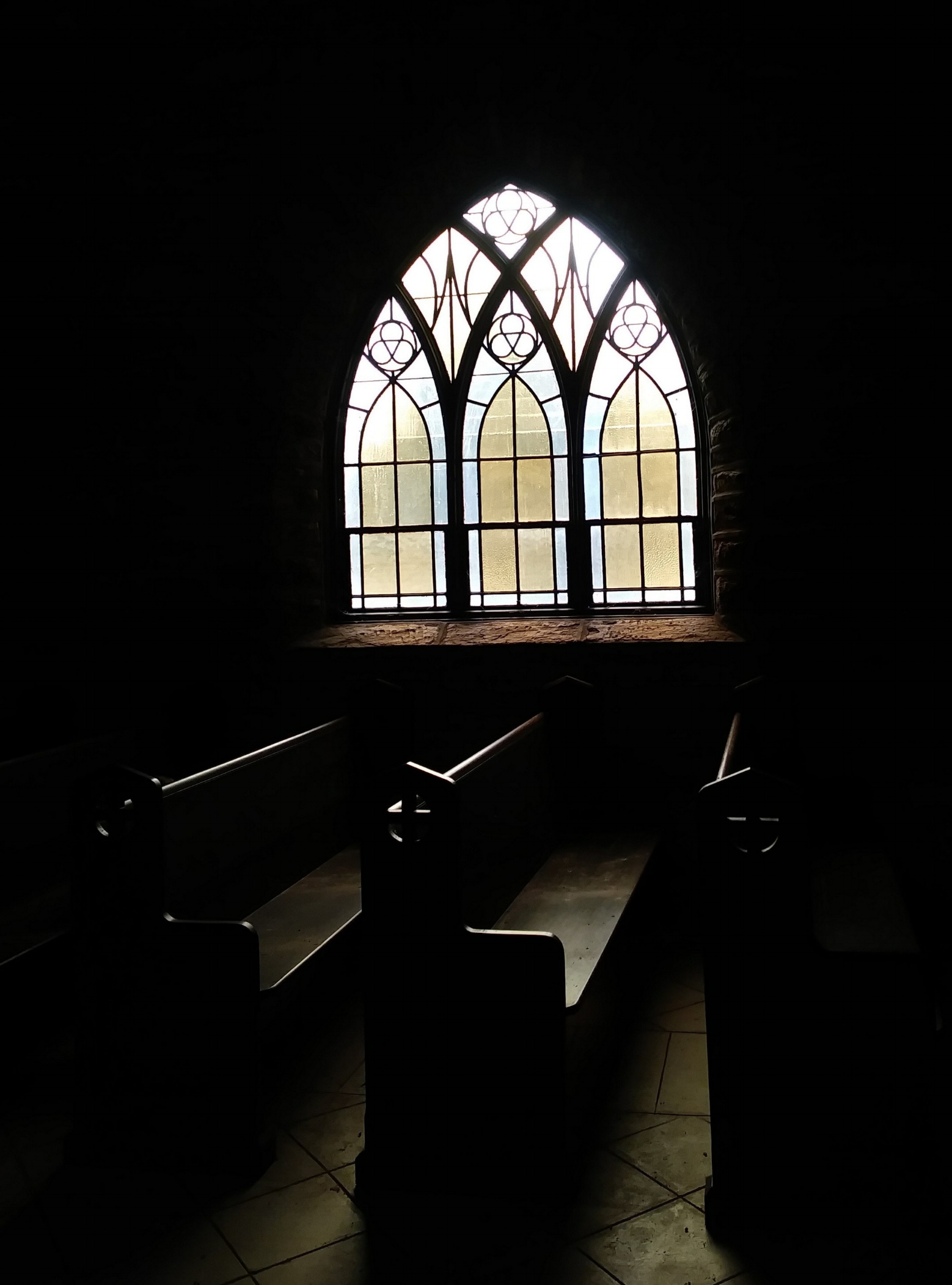“Chapel light” by Jessica Kille
by Rev. Tommy Williams, Senior Pastor
Paul harkens back in the opening verse of chapter 2 to his beginnings with the Corinthian church. With that Christian familial warmth, Paul reiterates the spirit in which he first came to the people.
I Corinthians 2:1-5:
When I came to you, brothers and sisters, I did not come proclaiming the mystery of God to you in lofty words or wisdom. For I decided to know nothing among you except Jesus Christ, and him crucified. And I came to you in weakness and in fear and in much trembling. My speech and my proclamation were not with plausible words of wisdom, but with a demonstration of the Spirit and of power, so that your faith might rest not on human wisdom but on the power of God.
With words of humility, Paul continues to convey that preaching, teaching, and being the church must rest on the power of God and not on one’s intellect, persuasion, or one’s own wisdom, but with the Spirit and with power so that others’ faith and one’s own would be founded on God’s power alone.
This is not to say that our intellect, our skills, and gifts cannot be instruments of God’s power. Too often in the letter here, the people are relying on their own “muscle” and again, Paul is concerned that little allegiances to certain teachers and apostles have arisen among the people and diluted the effectiveness of the church’s witness as a unified community in the world.
This is a risk for churches in all times and places. We become allied around certain ideas, certain projects, certain people and are tempted to become more loyal to our idea of Christian community.
Dietrich Bonhoeffer famously said that Christian community “is not an ideal which we must realize; it is rather a reality created by God in Christ, in which we may participate. The more clearly we learn to recognize that the ground and strength and promise of all our community is in Jesus Christ alone, the more calmly we will learn to think about our community and pray and hope for it.”
It should be a relief to you and me that Christian community is not a human notion that we have to prop up, reliant on our wisdom, ingenuity, or creativity.
Sure, we get to bring all of those gifts to the Church, but the Church is of God. Paul works to establish that spiritual reality before launching into his address of particular conflicts in the life of the Corinthian Christian community in chapter 3. We will pick up there next week.

